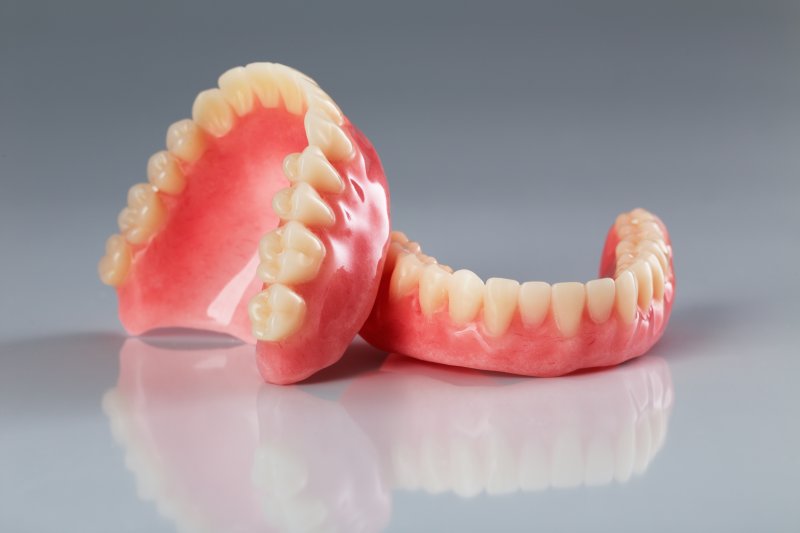
Dentures can be an incredibly lifelike solution to extensive tooth loss, and they should be so comfortable that you might forget that they are there. However, they can lose their fit over time, especially if they do not receive proper care and regular attention from a dentist. In addition to looking shabby, ill-fitting dentures can cause significant problems for your overall oral health. Here are a few common issues that can happen with ill-fitting dentures.
What Kind of Problems Can Poorly Fitting Dentures Cause?
Just like poorly fitting shoes can cause discomfort, instability, and blisters, a poorly fitting pair of dentures can lead to a variety of unpleasant symptoms. Some of them include:
Swelling and soreness
While a well-fitting pair of dentures should be completely comfortable, it will have hard and pointy parts and ends. If a pair of dentures is no longer fitting properly, these components can rub and poke the soft tissues of the mouth. If they cannot fit properly on the gums, they can slide and slip out of place easily, and this frequent friction can chafe the surrounding tissues. This irritation can cause swelling, inflammation, and bleeding in the gums.
Damage to remaining teeth
Improperly secured partial dentures can abrase your remaining natural teeth or dental implants with continued use. This can cause discomfort, cracks, chips, and thinning of the enamel layer, making these teeth more vulnerable to further damage and decay or requiring repairs to your dental implants.
Blisters and sores
A poor fit can cause dentures to frequently rub against soft tissues of the mouth, causing them to develop sores and blisters. In addition to being tender and physically unappealing, these injuries can make chewing painful and cause or aggravate gum disease.
Trouble chewing
It can be very hard to eat when the chewing process is painful. An ill-fitting pair of dentures can poke and prod as it shifts during chewing, and pressing up against blisters or sores can make the motion even more uncomfortable. Food debris can more easily become trapped under a denture that doesn’t fit right, increasing the risk of gum disease and other infections. A patient with poorly fitting dentures can even experience malnutrition if their chewing is so difficult that they can no longer eat properly.
Trouble speaking
Dentures can make it easier for a patient to enunciate, but they can’t do that if a poor fit causes them to slip out of place frequently. This can be an embarrassing situation that gets in the way of healthy socialization, which can lead a patient to become withdrawn and isolated.
How Can I Keep My Dentures Fitting Properly?
If your dentures no longer seem to fit well, your dentist can repair them or see if they need to be replaced. Dentures typically need adjustments every year or two, and repairs can take the form of a hard or soft reline, during which material will be placed at the points of contact with the gums to provide a better grip. This can help keep your mouth healthy and your dentures in good shape for up to ten years.
About the Practice
Crovatto & Edwards Family Dentistry prioritizes the patient experience above all else. Led by Drs. Steven Crovatto and Megan Edwards, the dedicated staff provides enjoyable and comfortable appointments that exceed expectations. Areas of expertise include preventive, cosmetic, emergency, and restorative dentistry such as denture treatments. To schedule an appointment to have your dentures examined, contact the office in Orange Park, FL online or dial (904) 272-0800.
